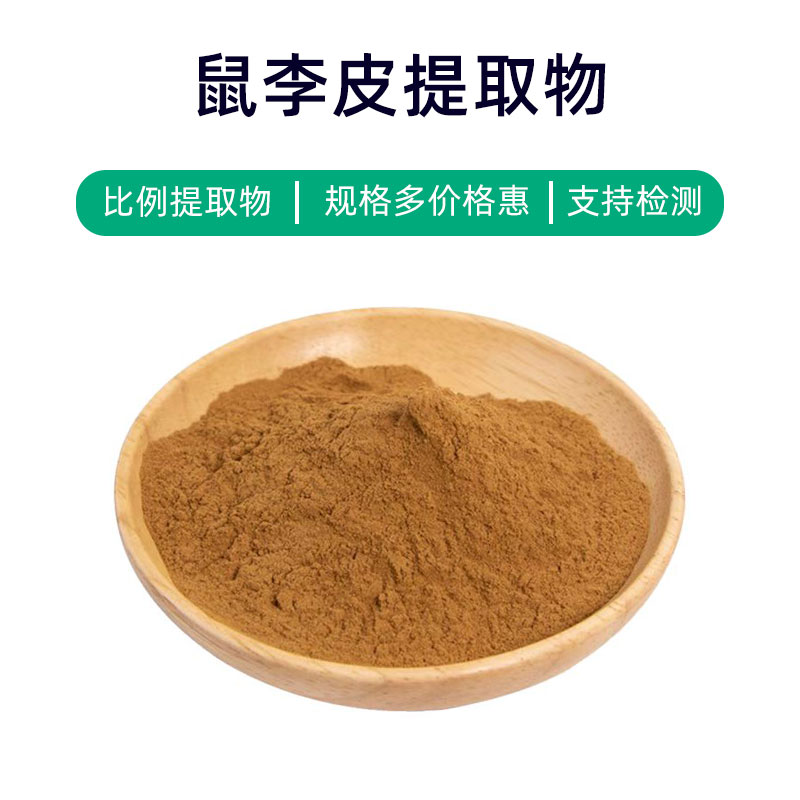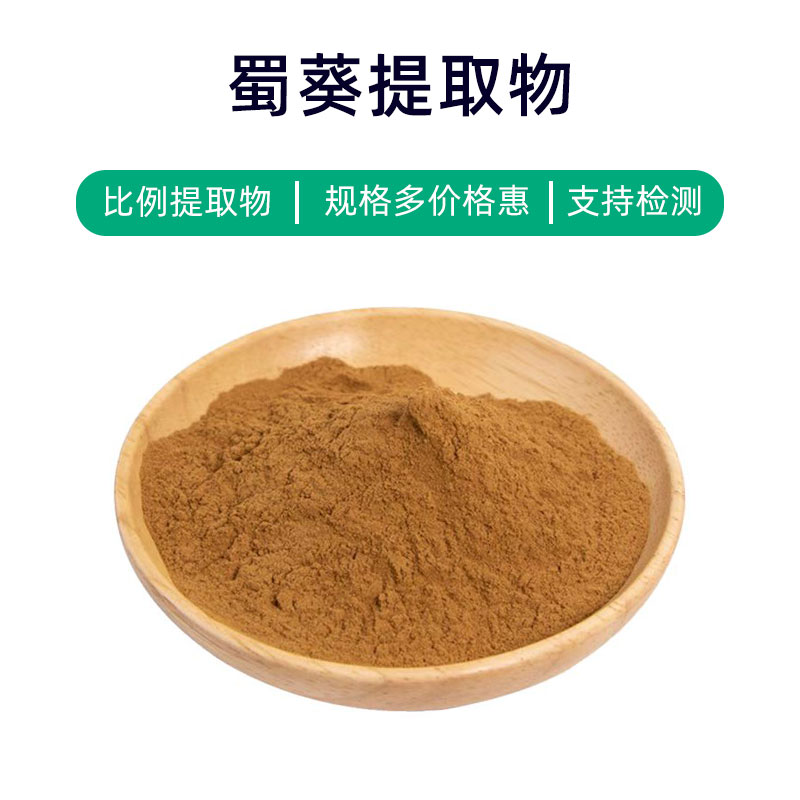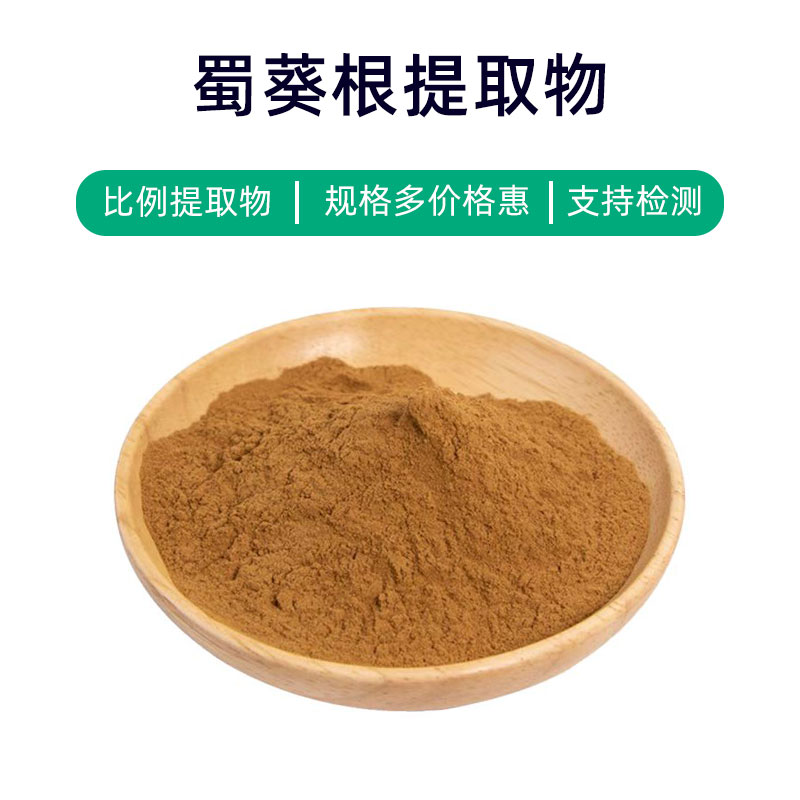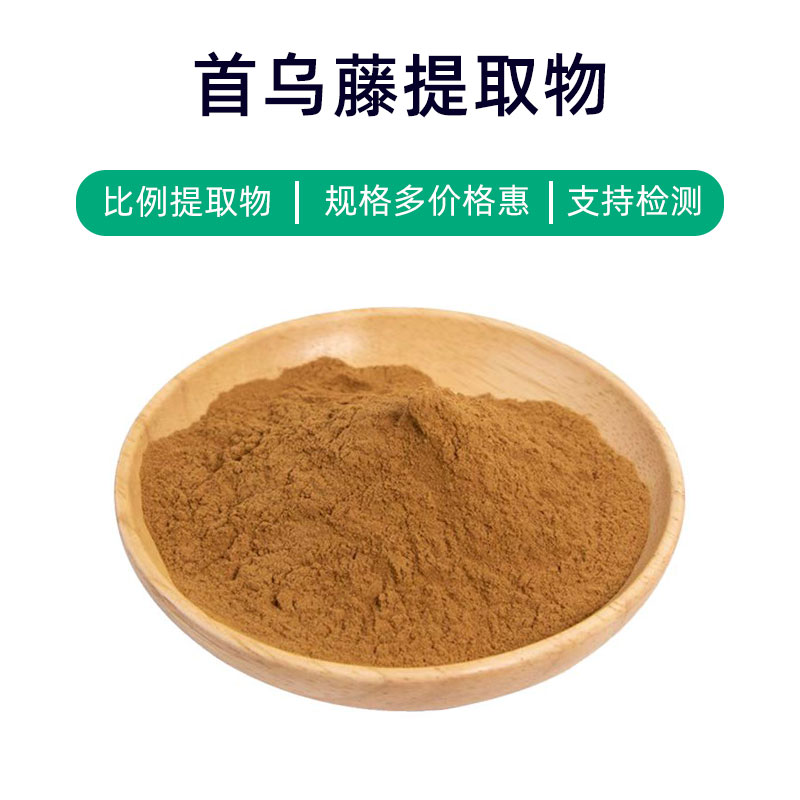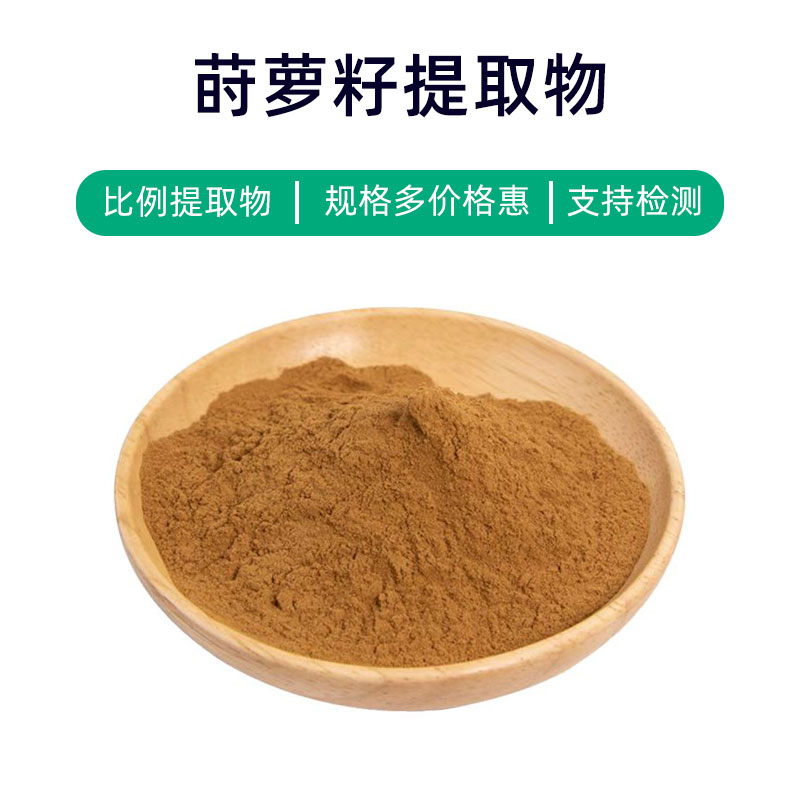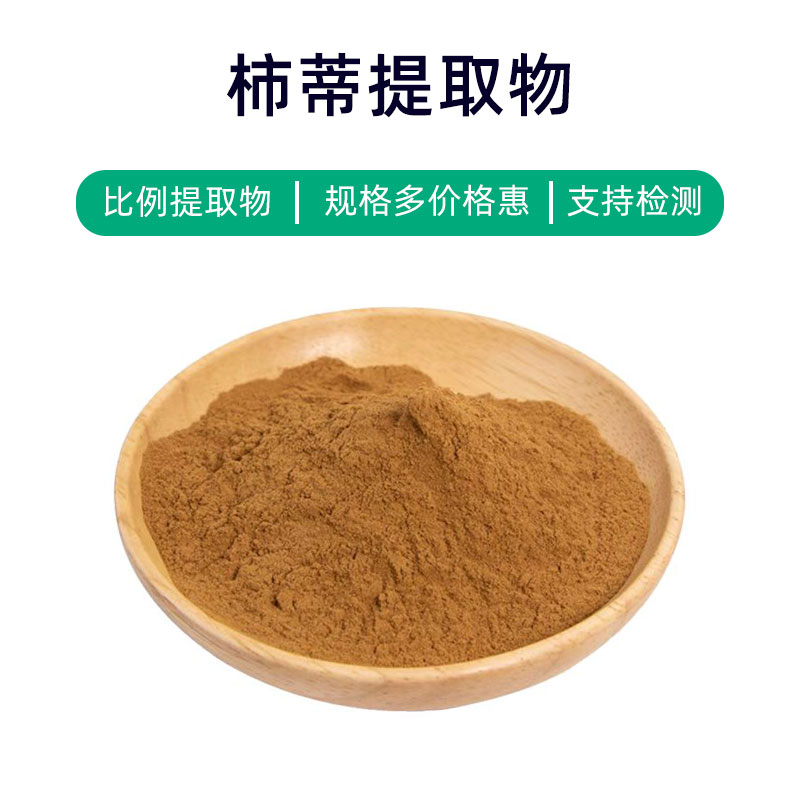Kiwi Root Extract Product Introduction
Kiwi Root Extract is a natural plant extract derived from the roots of the kiwi plant, primarily composed of flavonoids, polysaccharides, and abundant vitamins. These components provide numerous benefits and applications for the extract.
Firstly, Kiwi Root Extract is rich in flavonoids, which possess antioxidant and anti-inflammatory properties, helping to combat free radical damage and reduce oxidative stress on the skin, thereby maintaining skin health.
Secondly, the polysaccharides present in Kiwi Root Extract serve as another important component that moisturizes and soothes the skin, enhancing its hydration capacity, alleviating dryness and tightness, resulting in softer and smoother skin.
Additionally, Kiwi Root Extract contains significant amounts of vitamins such as Vitamin C and Vitamin E, which benefit the skin by promoting collagen synthesis, improving skin elasticity, and slowing down the aging process, making the skin appear younger and healthier.
In the cosmetics sector, Kiwi Root Extract is commonly included in skincare product formulations such as creams, serums, and masks, providing comprehensive care and nourishment due to its rich nutritional components and multiple benefits.
Kiwi Root Extract Production Process
The production process of Kiwi Root Extract typically involves the following steps:
- Raw Material Preparation: Fresh, high-quality kiwi roots are selected as the extraction raw material. The raw materials are washed and processed to remove surface impurities and contaminants.
- Crushing and Grinding: The washed kiwi roots are crushed and ground into a fine powder to increase extraction efficiency and surface area, facilitating subsequent extraction processes.
- Extraction: Appropriate extraction methods are used, such as water extraction, alcohol extraction, or supercritical fluid extraction, to isolate effective components from the kiwi roots. Conditions such as temperature, pressure, type, and concentration of the extractant are carefully controlled.
- Filtration and Concentration: The extracted liquid is filtered to remove solid particles and impurities, resulting in a purified extract. Then, evaporation or other concentration methods are employed to remove solvents, yielding concentrated Kiwi Root Extract.
- Refinement and Purification: The concentrated extract undergoes refinement and purification to eliminate residual impurities and harmful substances, enhancing the product's purity and quality.
- Drying: The refined extract is dried to remove moisture, reduce water content, extend shelf life, and facilitate subsequent packaging and transportation.
- Packaging and Storage: The dried Kiwi Root Extract is packaged using appropriate materials and containers to prevent exposure to light, oxygen, and moisture, maintaining product stability and activity. It should be stored in a cool, dry, and well-ventilated environment, avoiding high temperatures and direct sunlight.
The above outlines the typical production process for Kiwi Root Extract, which requires strict control over parameters and conditions at each stage to ensure consistent product quality and safety.
Effects and Side Effects of Kiwi Root Extract
As a natural plant extract, Kiwi Root Extract possesses various benefits and effects, primarily in the following aspects:
- Antioxidant Effects: Rich in antioxidants like Vitamin C, Vitamin E, and polyphenols, Kiwi Root Extract helps eliminate free radicals, delay cell aging, and protect cells from oxidative stress, thus maintaining cell health and youthfulness.
- Immune Regulation: Kiwi Root Extract is packed with bioactive components that enhance immunity, regulate immune system function, and boost resistance against infections and diseases.
- Anti-Inflammatory Effects: Active ingredients in Kiwi Root Extract exhibit significant anti-inflammatory properties, inhibiting the release of inflammatory mediators and alleviating symptoms of inflammatory conditions like arthritis and dermatitis.
- Heart Health Protection: Polyphenolic compounds in Kiwi Root Extract can lower cholesterol levels in the blood, improve circulation, and protect cardiovascular health, preventing the onset of heart and brain vascular diseases.
- Anti-Fatigue Effects: Nutrients in Kiwi Root Extract increase energy supply, enhance bodily endurance, relieve fatigue, and boost both physical strength and vitality.
- Improving Digestive System Function: Kiwi Root Extract is rich in dietary fiber and natural enzymes, promoting the secretion of digestive juices, improving gastrointestinal function, aiding food digestion, and reducing digestive issues.
- Detoxification: The active components in Kiwi Root Extract have strong detoxifying effects, promoting the elimination of waste from the body, cleansing toxins, and purifying the blood for better health.
- Nutritional Support: Kiwi Root Extract is rich in vitamins, minerals, amino acids, and other nutrients, providing comprehensive nutritional support and nourishing the body to enhance health.
Generally, Kiwi Root Extract does not typically produce serious side effects. However, certain individuals may experience allergic reactions or discomfort; those with allergies should use it cautiously. Additionally, due to individual differences, some people might encounter mild digestive issues or gastrointestinal discomfort, suggesting usage under a doctor's guidance to determine the appropriate dosage and method based on personal health status.
Applications and Dosage of Kiwi Root Extract
As a natural plant extract, Kiwi Root Extract has wide applications in the fields of medicine, food, and cosmetics. Below is a focus on its applications in these three areas, along with corresponding usage and dosage.
- Medical Applications:
- Uses: Kiwi Root Extract is commonly used to formulate health supplements and pharmaceuticals.
- Dosage: Generally recommended to be taken daily in specific amounts, with the exact dosage following product guidelines or medical advice.
- Effects: Useful for enhancing immunity, improving cardiovascular health, providing antioxidant and anti-inflammatory benefits, etc.
- Food Applications:
- Uses: Kiwi Root Extract can serve as a food additive, increasing the nutritional value and functionality of foods.
- Dosage: Typically added as a food ingredient in accordance with food safety regulations and production processes, with quantities depending on the specific product and food type.
- Effects: Can improve the antioxidant properties, enhance the nutritional value, and improve the taste of foods.
- Cosmetic Applications:
- Uses: Kiwi Root Extract is commonly found in skincare products, shampoos, and other cosmetics, known for its moisturizing, antioxidant, and soothing benefits.
- Dosage: Used as a cosmetic ingredient, added according to formulation proportions, with the amount based on product type and intended effects.
- Effects: Nourishes the skin, improves skin hydration balance, prevents skin aging, and protects hair from damage.
Overall, Kiwi Root Extract's applications in pharmaceuticals, food, and cosmetics are based on its rich nutritional components and bioactive substances, providing various health and beauty benefits. When used, relevant regulations and standards should be followed to ensure product safety and effectiveness.
Overview of the Source Plant of Kiwi Root Extract, Distribution, and Growth Environment
Kiwi (scientific name: Actinidia chinensis) is a common fruit tree whose roots are also used to extract beneficial components. Here are detailed insights into the source plant of Kiwi Root Extract, its distribution, and growth environments:
- Plant Overview:
- Kiwi (Actinidia chinensis) is a perennial woody plant belonging to the deciduous vine family within the Actinidiaceae family.
- It typically grows as a climbing vine with long, soft branches; its leaves are heart-shaped or oval; the small white flowers give way to the kiwi fruit, which is the primary edible part.
- The roots of the kiwi plant are also utilized for extracting beneficial components, prevalent in medicinal and supplement applications.
- Distribution:
- Kiwi is native to central, southern, and southeastern China, primarily found along the Yangtze River basin, covering provinces like Jiangsu, Zhejiang, Anhui, Fujian, and Jiangxi.
- Kiwi has a long cultivation history in China and is now widely grown in subtropical and temperate regions worldwide, including countries like New Zealand, Italy, and the United States.
- Growth Environment:
- Kiwi thrives in warm, humid climates, with high temperature, humidity, and light requirements, favoring temperatures between 15-25 degrees Celsius.
- Kiwi trees have specific soil requirements, preferring well-drained, fertile, loose soil rich in organic matter, with a strong tolerance for acidic soil.
- Typically found at altitudes of 500 to 1500 meters in mountainous or foothill regions, they flourish near rivers, forest edges, or valleys, with slopes and shady locations being ideal.
In summary, Kiwi Root Extract comes from the kiwi plant, which is widely distributed throughout China and globally. Its cultivation and growth environment are specific, but due to its rich nutritional content and medicinal value, it is extensively used in medicine, health supplements, and more.
Processing and Storage of Kiwi Root Extract
The processing of Kiwi Root Extract typically includes the following steps: first, the kiwi roots are cleaned and preliminarily treated to remove impurities and surface contaminants; then, the cleaned kiwi roots are ground and pulverized to improve extraction efficiency; subsequently, appropriate solvents or extractants are used for extraction to obtain the desired active components; finally, the extracted material is filtered, concentrated, dried, and processed to produce the final Kiwi Root Extract.
For storage and preservation, Kiwi Root Extract should be kept in a cool, dry, and well-ventilated environment, avoiding direct sunlight and humidity. It can be packaged in sealed containers or aluminum foil bags to prevent moisture and air exposure. Additionally, care should be taken to keep it away from toxic or foul-smelling substances to avoid affecting its quality and stability. Proper storage and preservation methods contribute to extending the shelf life and effectiveness of Kiwi Root Extract.
Monica Sun is a seasoned expert in the plant extraction industry with over a decade of experience in research and production. She specializes in the extraction and purification of plant active ingredients, focusing on driving innovation in natural product applications. Monica has participated in the development of multiple functional plant extracts, delivering high-value natural raw material solutions for the health food, pharmaceutical, and dietary supplement sectors.









